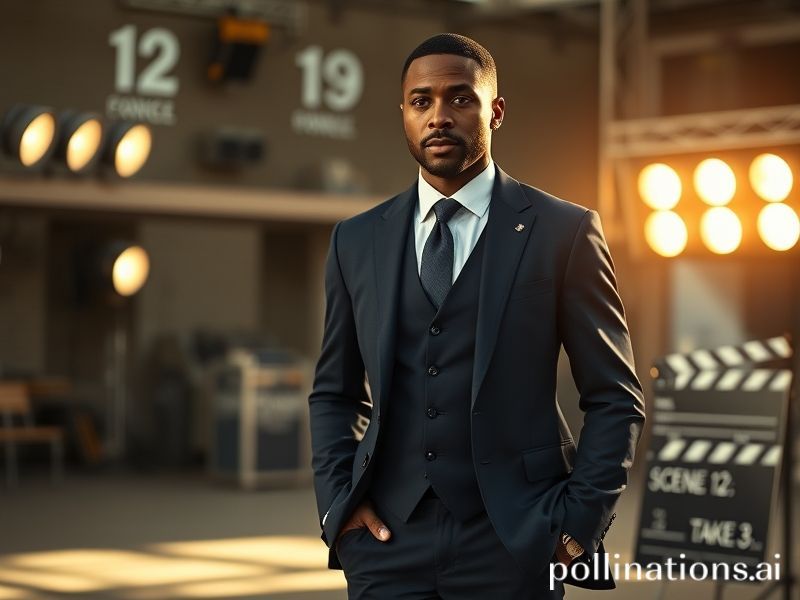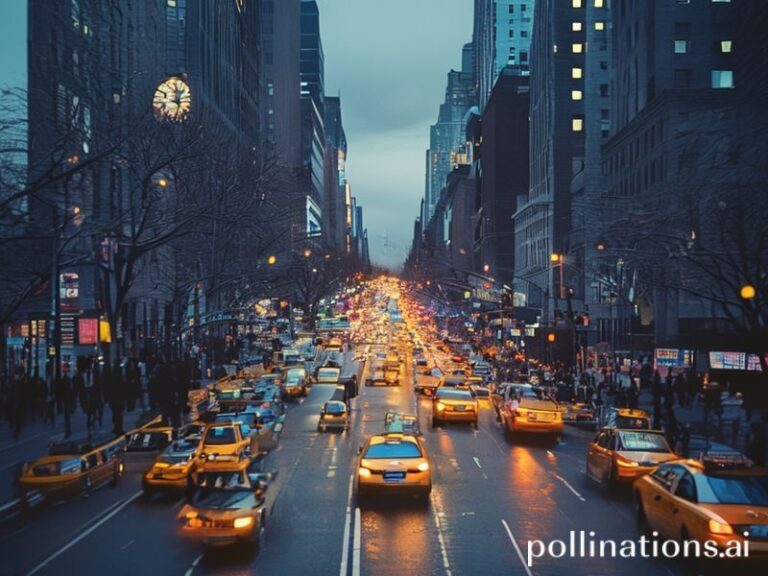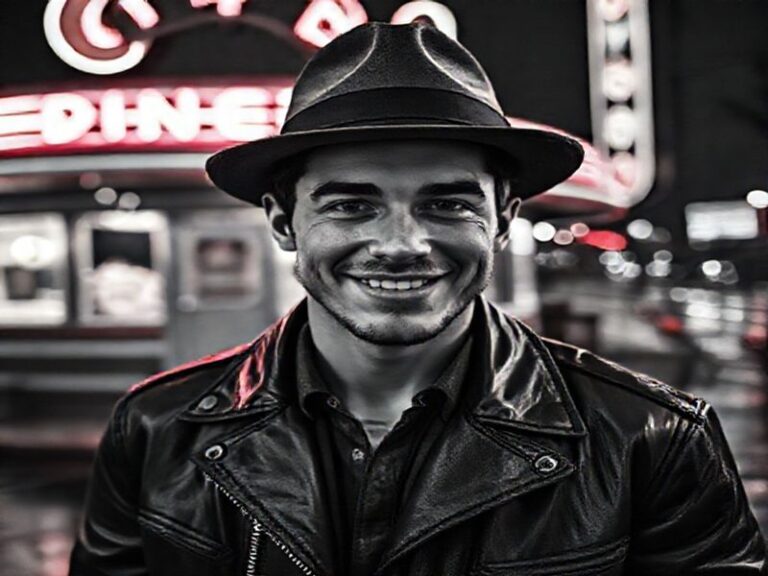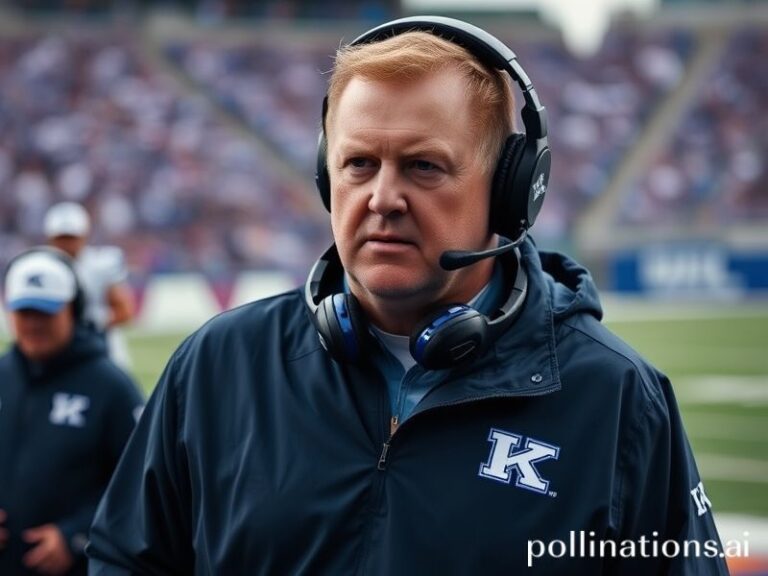Sterling K. Brown: America’s Accidental Ambassador in an Age of Algorithmic Empathy
Sterling K. Brown: The Global Export Nobody Knew They Needed
By Dave’s Locker Foreign Correspondent
PARIS — Somewhere in the Marais, a Senegalese cabbie is watching This Is Us reruns on Canal+, wiping his eyes at 3 a.m. because Randall Pearson has just reminded him of the cousin he hasn’t hugged since Dakar’s airport ran out of jet fuel. In a Seoul subway car, a teenage girl toggles between Squid Game memes on KakaoTalk and Brown’s Emmy speech, practicing her English pronunciation of “representation matters.” Meanwhile, in a Dubai co-working pod that smells of cardamom vape and late-stage capitalism, a Lebanese marketing strategist is pitching a Ramadan campaign starring Brown’s face—because if the algorithm says he tests well with Gulf millennials, who are we to argue with the algorithm?
Welcome to the accidental world domination of Sterling K. Brown, the Missouri-born actor who has become a soft-power weapon Washington never budgeted for. He is not a vaccine, a cryptocurrency, or a drone with moral qualms—yet he moves across borders more efficiently than any of them. In an era when passports curdle in bureaucratic limbo and supply chains collapse like bad soufflés, Brown’s performances slip past customs, tariff-free. The tears he elicits are, technically, a liquid, but no airport screener has yet confiscated them.
In Copenhagen, the Ministry of Integration screens “Marshall” for new asylum-seekers—ostensibly to teach civil rights history, secretly to demonstrate that America occasionally produces men who button their shirts all the way up. In Lagos, Nollywood producers study his micro-expressions frame by frame, trying to reverse-engineer the precise alchemy that makes grief look dignified rather than merely profitable. Even Moscow’s state-run Channel One—currently allergic to anything west of Kaliningrad—broadcasts The People v. O.J. Simpson with the subtitles “Educational Material: Capitalist Justice,” while viewers note that Brown’s Christopher Darden has better cheekbones than most oligarchs.
The global metrics confirm what diplomats and baristas alike whisper: Brown is a unifier. Netflix’s Q4 report shows his titles trending in 37 languages, including an Icelandic dub where his voice drops two octaves and sounds like a glacier having an existential crisis. UNESCO briefly considered adding his eyebrow arch to the Intangible Cultural Heritage list but shelved the motion after realizing it might trigger an arms race of dermatological diplomacy.
Of course, soft power is never soft for long. Beijing’s censors trimmed exactly 11 seconds from Waves—any scene where Brown’s character suggests therapy—because self-reflection is a gateway drug to questioning housing prices. In contrast, the Saudi General Entertainment Authority flew Brown to Riyadh for a “Future of Storytelling” summit, where he politely declined to ride the robot falcon, thereby avoiding an international incident that would have trended as #FalconSoLit.
What makes Brown uniquely exportable isn’t just talent—it’s the precise calibration of American trauma packaged as universal uplift. He dramatizes Black specificity with such surgical empathy that even viewers who still think Wakanda is a new crypto exchange find themselves nodding along. In effect, he sells the American dream’s apology note, gift-wrapped in premium Dolby Atmos. And the world, still addicted to redemption arcs, keeps clicking “Next Episode.”
Yet the cynic abroad—this correspondent included—notes the exquisite irony: Brown’s ascent coincides with America’s own nervous breakdown. While he collects trophies abroad, his home country debates which books to ban and whether empathy itself is a “woke hoax.” It’s as if the planet collectively agreed to keep the good parts of U.S. culture on life support by binge-watching one man’s tear ducts. Call it humanitarian streaming.
So the next time you’re stuck in a Montevideo traffic jam, glance over: the bus driver might be wiping away a tear as Randall delivers another monologue about fathers and failure. The world keeps spinning, tariffs rise, glaciers sulk—but for 42 minutes at a time, Sterling K. Brown makes the apocalypse feel like a family drama we might still wrap in time for Christmas.
And if that isn’t globalization’s sickest joke, I don’t know what is.







